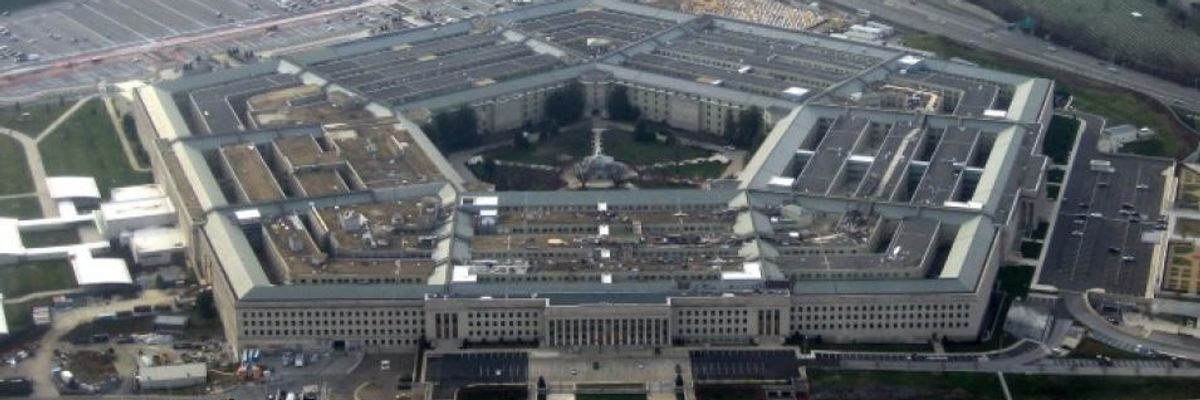The U.S. House on Friday overwhelmingly approved a $696 billion defense policy bill--the 2018 National Defense Authorization Act (NDAA)--that critics were quick to denounce as yet another vote for "endless wars" and "Pentagon boondoggles."
"As always, only spending that benefits the poor is 'unaffordable.' Larger sums are funneled straight into corporate pockets without protest."
--Alex Emmons, The Intercept
"Every year, Congress authorizes billions of dollars of Pentagon pork at the expense of other security needs and other taxpayer priorities," Paul Kawika Martin, senior director for policy and political affairs at Peace Action, said in a statement. "While war profiteers rejoice, voters wonder why the government cannot provide for education, job creation, healthcare, and needs in their community."
The legislation, which passed with a vote of 344-81, far surpasses in cost President Donald Trump's request for $603 billion earlier this year.
Politico summarized the bill's contents:
The House measure would authorize $621.5 billion for national defense programs, including the Pentagon's base budget and nuclear programs under the Energy Department, as well as another $75 billion in war funding.
It also would tap $10 billion from the war-related Overseas Contingency Operations account to pay for base budget items, including $6 billion to boost Navy shipbuilding. The NDAA funding levels mirror a budget blueprint being crafted by the House Budget Committee.
Rep. Barbara Lee (D-Calif.), who voted against the measure, said in a statement that "Congressional Republicans have chosen to bankroll bloated Pentagon spending and funnel billions into the Overseas Contingency Operations slush fund, while refusing to address our fundamental obligation to debate our ongoing military operations."
The Intercept's Alex Emmons argued that the exorbitant military spending approved year after year underscores the warped priorities of Congress.
"As always," Emmons wrote, "only spending that benefits the poor is 'unaffordable.' Larger sums are funneled straight into corporate pockets without protest."




